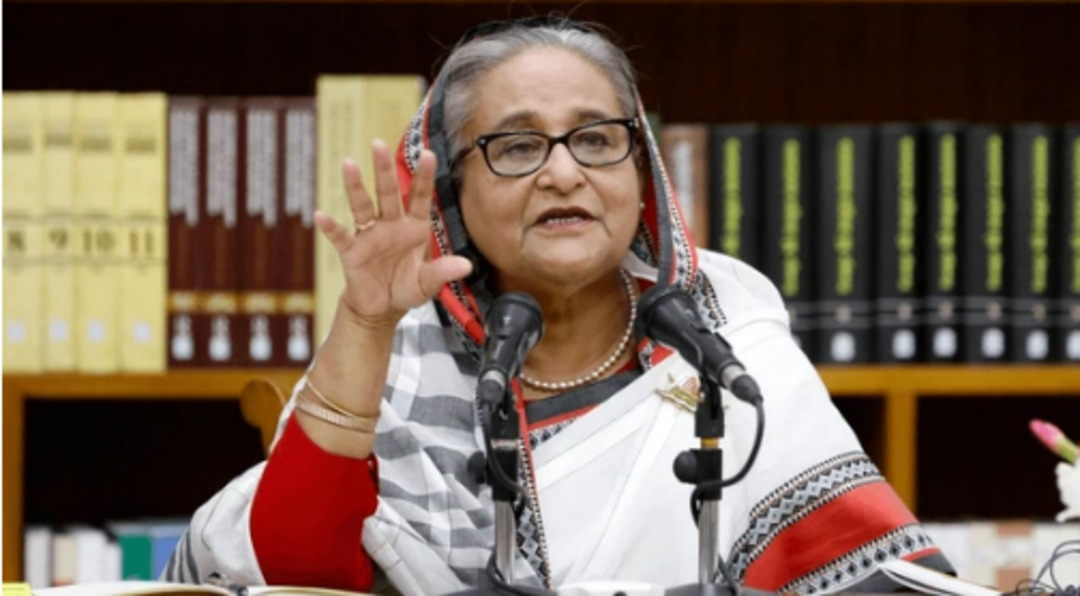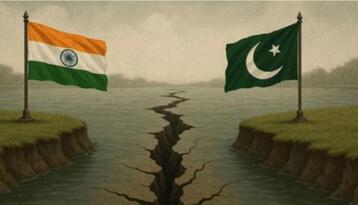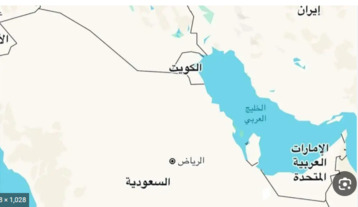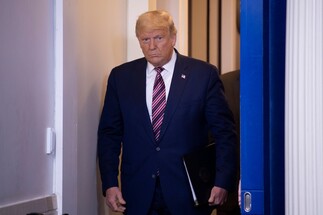-
Resignation and Escape of Bangladesh's Prime Minister After Protesters Storm the Palace

Resignation and Escape of Bangladesh's Prime Minister After Protesters Storm the Palace
Bangladesh's Prime Minister, Sheikh Hasina, resigned and fled the country on Monday after protesters stormed her palace amidst a wave of violence, the worst the country has seen in over five decades.
According to Agence France-Presse (AFP), at least 56 people were killed during violent protests that erupted today.
Upon hearing news of Hasina's escape, jubilant protesters stormed the presidential palace, waving flags and dancing on tanks in the streets of Dhaka. Scenes of the crowds breaking through the gates of the Prime Minister's official residence were broadcast on "Bangladesh 24," showing them waving at the cameras during their celebrations.
A source close to Hasina, who is 76 years old, stated that she had fled to a "safer place," which was later revealed to be India, her biggest ally since her first election in 1996. Hasina has affirmed that India assisted Bangladesh during the War of Independence in 1971.
Strengthening Russian-Iranian Cooperation After the Assassination of Ismail Haniyeh
In a televised speech, Bangladesh's army chief, Waqar Zaman, announced that he would "take full responsibility" following Sheikh Hasina's resignation and escape. He explained that a caretaker government would be formed, and he would meet with President Mohammad Shahabuddin to reach a solution by the end of the day.
Zaman also vowed to deliver justice for all citizens of Bangladesh, noting that he had already spoken to the country's opposition parties, although he had not yet held discussions with Hasina's party, the Awami League.
AFP reported that approximately 300 citizens have been killed so far, including 100 on Sunday alone, among them 13 police officers. Media outlets and protesters accuse the police of being largely responsible for the high death toll, while the government insists that police only opened fire in self-defense or to protect state property.
Earlier, the government had responded by imposing an unprecedented nationwide curfew and cutting off internet access in parts of the country, which has a population of 170 million people.
Hasina had ruled Bangladesh since 2009, winning her fourth consecutive election in January in an uncontested vote. Human rights groups have accused her government of abusing state institutions to consolidate power and eliminate opposition, including extrajudicial killings of opposition activists.
Levant News
You May Also Like
Popular Posts
Caricature
BENEFIT Sponsors BuildHer...
- April 23, 2025
BENEFIT, the Kingdom’s innovator and leading company in Fintech and electronic financial transactions service, has sponsored the BuildHer CityHack 2025 Hackathon, a two-day event spearheaded by the College of Engineering and Technology at the Royal University for Women (RUW).
Aimed at secondary school students, the event brought together a distinguished group of academic professionals and technology experts to mentor and inspire young participants.
More than 100 high school students from across the Kingdom of Bahrain took part in the hackathon, which featured an intensive programme of training workshops and hands-on sessions. These activities were tailored to enhance participants’ critical thinking, collaborative problem-solving, and team-building capabilities, while also encouraging the development of practical and sustainable solutions to contemporary challenges using modern technological tools.
BENEFIT’s Chief Executive Mr. Abdulwahed AlJanahi, commented: “Our support for this educational hackathon reflects our long-term strategic vision to nurture the talents of emerging national youth and empower the next generation of accomplished female leaders in technology. By fostering creativity and innovation, we aim to contribute meaningfully to Bahrain’s comprehensive development goals and align with the aspirations outlined in the Kingdom’s Vision 2030—an ambition in which BENEFIT plays a central role.”
Professor Riyadh Yousif Hamzah, President of the Royal University for Women, commented: “This initiative reflects our commitment to advancing women in STEM fields. We're cultivating a generation of creative, solution-driven female leaders who will drive national development. Our partnership with BENEFIT exemplifies the powerful synergy between academia and private sector in supporting educational innovation.”
Hanan Abdulla Hasan, Senior Manager, PR & Communication at BENEFIT, said: “We are honoured to collaborate with RUW in supporting this remarkable technology-focused event. It highlights our commitment to social responsibility, and our ongoing efforts to enhance the digital and innovation capabilities of young Bahraini women and foster their ability to harness technological tools in the service of a smarter, more sustainable future.”
For his part, Dr. Humam ElAgha, Acting Dean of the College of Engineering and Technology at the University, said: “BuildHer CityHack 2025 embodies our hands-on approach to education. By tackling real-world problems through creative thinking and sustainable solutions, we're preparing women to thrive in the knowledge economy – a cornerstone of the University's vision.”
opinion
Report
ads
Newsletter
Subscribe to our mailing list to get the new updates!






















